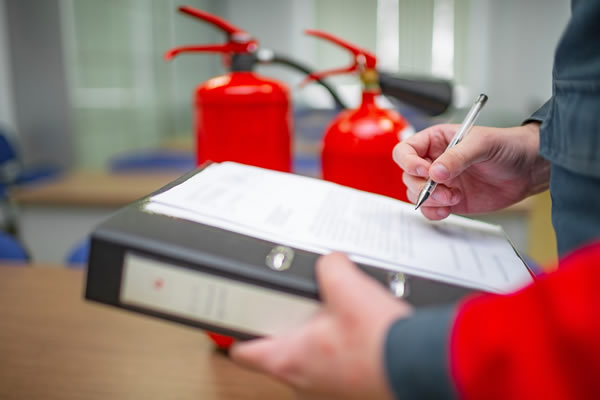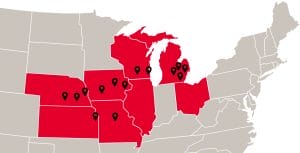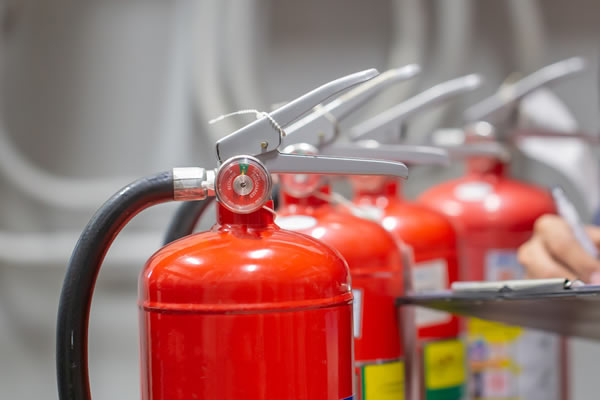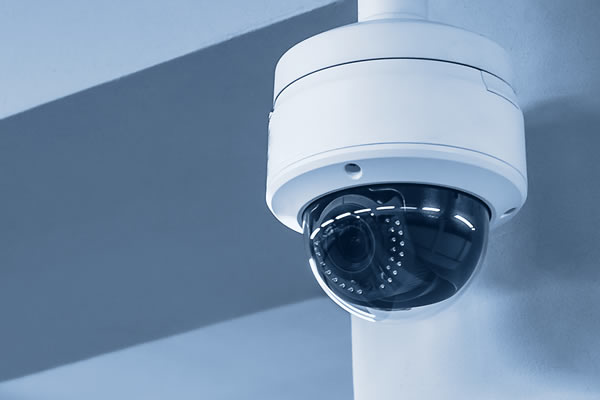
Code Corner with Dan Decker Podcast
Welcome to Code Corner with Dan Decker! This podcast series is your essential guide to understanding the complex world of fire and life safety codes and regulations. Join Christa Poss, VP of Sales and Marketing at Midwest Alarm Services, and Dan Decker, Industry Affairs Manager, as they demystify national, state, and local standards, share real-world insights, and break down crucial topics affecting building owners, facility managers, and industry professionals. Get ready to enhance your knowledge and navigate the evolving landscape of fire and life safety with confidence!
Disclaimer: This podcast provides general information and should not be used as a single source of information for specific fire alarm system requirements. Always consult your relevant state, local, and national building and fire codes, as well as qualified professionals, for accurate and applicable requirements.
Episode 2:
Fire Alarm Basics: The Building Code Explained (Chapters 1-3)
In this episode, we build on our discussion of the hierarchy of codes and dive into the first foundational document: the International Building Code (IBC). Dan Decker, our Industry Affairs Manager, shares his expertise on the IBC’s intricacies, providing essential insights for anyone involved in fire and life safety.
In this video, you’ll learn about:
- The History and Enforcement of the IBC: Discover the origins of the IBC from three separate code organizations—BOCA, ICBO, and the Southern Building Code Congress—and how they merged to create the International Code Council (ICC). Dan also explains how the code is enforced and revised on a three-year cycle.
- The Power of “Shall”: Understand the crucial distinction between “shall” and other words like “could,” “may,” or “should,” and why “shall” signifies an enforceable, unambiguous requirement in code language.
- Referenced Codes and Standards: We discuss why other standards like NFPA 72 are not just guidelines but are explicitly incorporated into the IBC, making them the minimum acceptable requirement.
- Essential Chapters and Definitions: Dan walks us through key sections of the code, including Chapter 1 on scope and administration, Chapter 2 on definitions, and Chapter 3 on occupancy classifications. He also shares a valuable lesson on the importance of understanding specific terms like “entrance to the exit”.
- Real-World Application: Get a first-hand account of how a building owner successfully challenged a plan reviewer’s unreasonable request by knowing the code requirements, highlighting the importance of understanding the code inside and out.
Thanks for tuning in! Stay safe and be sure to subscribe to the Midwest Alarm Services YouTube channel for future episodes as we continue to simplify the world of fire and life safety codes.
Episode 1 (Part 1)
Fire Alarm Fundamentals: What They Do and Why They Matter
Welcome to the very first episode of “Code Corner with Dan Decker”! In this inaugural segment, your host, Christa Poss, Vice President of Sales and Marketing with Midwest Alarm Services, sits down with Industry Affairs Manager, Dan Decker, to break down the fundamental purpose of fire alarm systems.
Dan explains that a fire alarm system is all about detecting an “off-normal event related to fire” and then triggering a response, which can range from simple to complex.
In this segment, you’ll learn:
- The basic function of a fire alarm system: Detection and response.
- “Dedicated function” systems: How fire alarms interact with elevators to ensure safe recall during a fire.
- Sprinkler supervisory systems: How these systems monitor water flow and valve status to alert monitoring centers and fire departments.
- Diverse inputs and outputs: Beyond sirens, discover how fire alarms can control fire doors, shut down air handling units, recall elevators, and interface with other building systems like theater sound equipment or industrial machinery.
- “Required” vs. “Non-required” systems: Understand why building codes, insurance companies, and fire codes mandate fire alarm installations for life and property protection.
- Residential Code Challenges: The story of how attempts to use residential fire alarm systems as alternatives to smoke alarms led to national code modifications, emphasizing homeowner ownership and permanence.
Look for Part 2, “Navigating the Codes: Commercial Clarity”, where Dan delves deeper into how different codes impact fire alarm installations!
Episode 1 (Part 2)
Navigating Codes: Commercial Clarity
Welcome back to “Code Corner with Dan Decker”! In this second segment, Christa Poss and Dan Decker continue their insightful discussion on fire alarm systems, focusing on the fascinating complexities of navigating various building and fire codes. Dan picks up his story about a unique situation involving residential fire alarm systems, detailing how a company’s attempt to lease code-required systems led to significant changes in national residential codes, reinforcing the principle of “doing the right thing.”
In this segment, you’ll discover:
- Commercial Code Clarity: How understanding specific building code requirements can lead to more accurate and cost-effective fire alarm system quotes for commercial buildings, avoiding unnecessary installations.
- Code Relationships Overview: A simplified explanation of how different codes interact: the building code dictates if and what minimum fire alarm system is needed for new construction, while the fire code governs maintenance in existing buildings.
- The Role of NFPA 72: Learn that the National Fire Alarm Code (NFPA 72) provides the detailed “how-to” instructions for installing, testing, and maintaining fire alarm systems.
- Interfacing Codes: A brief mention of how other codes like electrical and mechanical codes integrate with fire alarm systems for overall building safety.
This episode provides crucial insights into the regulatory landscape of fire alarm systems, vital for property owners and industry professionals alike.






